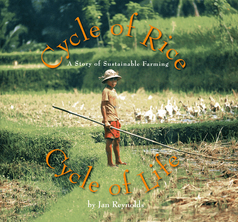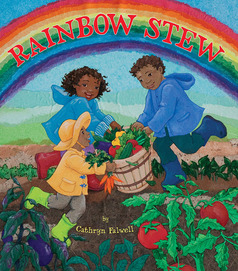April is National Poetry Month! All month long we’ll be celebrating by posting some of our favorite poems for Poetry Friday. For today’s Poetry Friday, we chose a poem from Under the Mesquite, written by Guadalupe Garcia McCall.
Continue reading
Using “Under the Mesquite” to Help Medical Students Gain Cultural Awareness
We are always excited to hear about uniqu![]() e ways in which our books are being used, and were thrilled to come across this review of Under the Mesquite that outlines how to use the book in a very special way: to help medical students gain cultural awareness and insight into the experiences of patients from different backgrounds. Author Mark Kuczewski kindly gave us permission to cross-post this review from the Reflective MedEd blog.
e ways in which our books are being used, and were thrilled to come across this review of Under the Mesquite that outlines how to use the book in a very special way: to help medical students gain cultural awareness and insight into the experiences of patients from different backgrounds. Author Mark Kuczewski kindly gave us permission to cross-post this review from the Reflective MedEd blog.
Helping medical students to gain cultural awareness and insight into the experience of patients and families from backgrounds different than their own is no small task. And the search for poignant materials that are easily fit within the demanding environment of a medical school curriculum is never-ending. The good news is that I can unequivocally recommend Under the Mesquite by Guadalupe Garcia McCall (Lee & Low Books, 2011). This narrative will help students to gain insight into the meaning of illness within families, especially within the context of a particular contemporary newly-arrived Mexican-American family…
#DVpit: A Twitter Pitching Event for Marginalized Authors
While the number of diverse books is increasing, the number of new diverse authors entering the field remains low. Significant barriers remain for authors of color, Native authors, disabled authors, and other marginalized voices. With that in mind, we are excited to share information on this special Twitter event, #DVpit, created to showcase pitches by marginalized voices and help connect them to agents and editors. The information below is cross-posted with permission from literary agent Beth Phelan’s website. Continue reading
Interview: Why Culturally Responsive Literature Matters

![]() In this interview with The Open Book, guest blogger R. Joseph Rodríguez, Assistant Professor of Literacy and English Education at The University of Texas at El Paso, shares strategies on teaching Guadalupe García McCall’s novels in middle and high school English Language Arts, as well as discusses the impact of culturally responsive and relevant literature in the classroom.
In this interview with The Open Book, guest blogger R. Joseph Rodríguez, Assistant Professor of Literacy and English Education at The University of Texas at El Paso, shares strategies on teaching Guadalupe García McCall’s novels in middle and high school English Language Arts, as well as discusses the impact of culturally responsive and relevant literature in the classroom.
What inspired you to write about Guadalupe García McCall, her literature, and classroom applications?
Continue reading
Resources for Teaching About Wangari Maathai and SEEDS OF CHANGE
Today is Wangari Maathai’s birthday! Wangari Maathai was the first African woman, and the first environmentalist, to win the Nobel Peace Prize. Seeds Of Change: Planting a Path to Peace, which tells Wangari’s story, continues to be one of the most popular books that we publish!
In honor of Wangari Maathai’s birthday and upcoming Earth Day later this month, here’s a list of the many fantastic resources and ideas available to educators who are teaching about Wangari Maathai’s legacy and using Seeds Of Change: Planting a Path to Peace: Continue reading
Diversity 102: 5 Things to Consider Before Putting Together a Diversity Panel
 Over the last few years, we have seen the number of panels about diversity skyrocket. It wasn’t long ago that an all-white BookCon lineup inspired the creation of We Need Diverse Books; now, a few years later, we constantly come across conference lineups with multiple diversity-focused panels (take the upcoming YALSA Symposium for young adult librarians, as just one example). Many regional and national conferences have adopted diversity as a conference theme, and we have been invited to speak at multiple Diversity Summits, Diversity Days, and more.
Over the last few years, we have seen the number of panels about diversity skyrocket. It wasn’t long ago that an all-white BookCon lineup inspired the creation of We Need Diverse Books; now, a few years later, we constantly come across conference lineups with multiple diversity-focused panels (take the upcoming YALSA Symposium for young adult librarians, as just one example). Many regional and national conferences have adopted diversity as a conference theme, and we have been invited to speak at multiple Diversity Summits, Diversity Days, and more.
This is a terrific thing. Panels are an important way to keep the focus on this topic and to educate the movers and shakers within all different industries about why diversity matters. The high number of panels focused on diversity is a good indicator that more people are thinking about these issues than ever before.
But here’s the thing about panels: just putting the word “diversity” on a panel and hoping it does the job isn’t enough. Continue reading
Four Depictions of Post-Traumatic Stress Disorder in YA
According to the National Institute of Mental Health, Post-Traumatic Stress Disorder (PTSD) is a disorder that develops in some people after they’ve witnessed a shocking or traumatic event. People experience shock after traumatic events, but those who don’t recover from the initial shock are more likely to develop PTSD. After a distressing or upsetting event, it’s important to seek support.
While literature cannot take the place of a support group or therapy, it can help us process grief and trauma. Teens are not immune to PTSD, and several YA novels explore this disorder in different ways: through fantasy, dystopia, or realistic fiction. Some are from the perspective of the person suffering, while others explore what it’s like to be a family member or friend.
Here is a list of four young adult books that deal with PTSD:
Salt Lake Comic Con 2016: M.K. Hutchins and Valynne E. Maetani Schedules
This weekend is Salt Lake Comic Con (March 24-March 26). Tu Books authors M.K. Hutchins (DRIFT) and Valynne E. Maetani (INK AND ASHES) will be in attendance. Check out their schedules below:
Writing conferences: A Place to Learn the Craft
Looking online for resources as a new writer can be confusing. If you google “how to get a book published,” many of the first results you see are ads for resources that are sketchy at best—pay-to-play publishing, self publishing, vanity publishing. (While self publishing is a valid route, it’s important to know all your options before deciding self publishing is the right way for you.)
Change the query to “how to get a children’s book published” and the results aren’t much better. Eventually you may stumble on the helpful Frequently Asked Questions page for the Society of Children’s Book Writers and Illustrators (SCBWI), an excellent resource for new writers looking to improve their craft and figure out the publication process. But navigating all the resources out there, good and bad, can be tricky.
Sometimes, you need to cut through the layers of information overload and just learn from publishing professionals directly. This is where writing conferences come in—which offer this and much more. Continue reading
Seven Children’s Books to Celebrate World Water Day
World Water Day is March 22nd. It’s an internationally recognized day to celebrate water and those who labor in water, started by the United Nations in 1992. The first World Water Day was celebrated in 1993.
Explore the importance of water with these excellent titles:
Cycle of Rice, Cycle of Life by Jan Reynolds –  On the island of Bali in Southeast Asia, rice farmers follow the cycles of the water and the soil in order to plant rice.
On the island of Bali in Southeast Asia, rice farmers follow the cycles of the water and the soil in order to plant rice.
Everglades Forever, written Trish Max and photographed by Cindy Karp – Explore the Everglades, the majestic wetlands located in Florida alongside a fifth grade class.
Giving Thanks, written by Chief Jake Swamp and illustrated by Eric Printup – For as long as anyone can remember, Mohawk parents have taught their children to start each day by giving thanks to Mother Earth. The Thanksgiving Address has been adapted for children by Chief Jake Swamp.
taught their children to start each day by giving thanks to Mother Earth. The Thanksgiving Address has been adapted for children by Chief Jake Swamp.
I Know the River Loves Me/Yo sé que el río me ama by Maya Christina Gonzalez – A young girl named Maya goes to visit her friend, the river. In this gentle story, the river takes care of Maya and Maya takes care of the river.
Rainbow Stew by Cathryn Falwell – On a rainy day, three children go into their  Grandpa’s garden to pick colorful vegetables for rainbow stew.
Grandpa’s garden to pick colorful vegetables for rainbow stew.
The Woman Who Outshone the Sun/La mujer que brillaba aún más que el sol, written by Alejandro Martinez and illustrated by Fernando Olivera – In this Zapotec legend, Lucia Zenteno walks into a village in Central Mexico. Some of the villagers say that her long, dark hair blocks out the sun; others say that it outshines the sun. The frightened villagers banish Lucia and the river goes with her.
The Mangrove Tree, written by Susan L. Roth and Cindy Trumbore, illustrated by Susan L. Roth – People in the small village of Hargigo  in Eritrea were unable to grow enough food for themselves and their animals. With the help of Dr. Gordan Sato, a scientist, they plant mangrove trees and transform their impoverished village into a self-sufficient one.
in Eritrea were unable to grow enough food for themselves and their animals. With the help of Dr. Gordan Sato, a scientist, they plant mangrove trees and transform their impoverished village into a self-sufficient one.
Vanishing Cultures: Amazon Basin by Jan Reynolds – Explore the lives of the Yanomama people that live in the Amazon River Basin through the eyes of Tuwenowa and his family.
Vanishing Cultures: Frozen Land by Jan Reynolds – Explore the lives of the Inuit people through the eyes of Kenalogak, a  young girl, who helps her father with building an igloo, and goes ice fishing with here brother at night.
young girl, who helps her father with building an igloo, and goes ice fishing with here brother at night.
More Resources
7 End-of-year Field Trips and Book Pairings That Your Students Will Love (But Won’t Break the Bank)
Reading for the Earth: Ultimate Earth Day Resource Roundup
Book and Activity Suggestions to Match Your Summer Adventure: National and State Parks!
Book and Activity Suggestions to Match Your Summer Adventure: Beaches!

